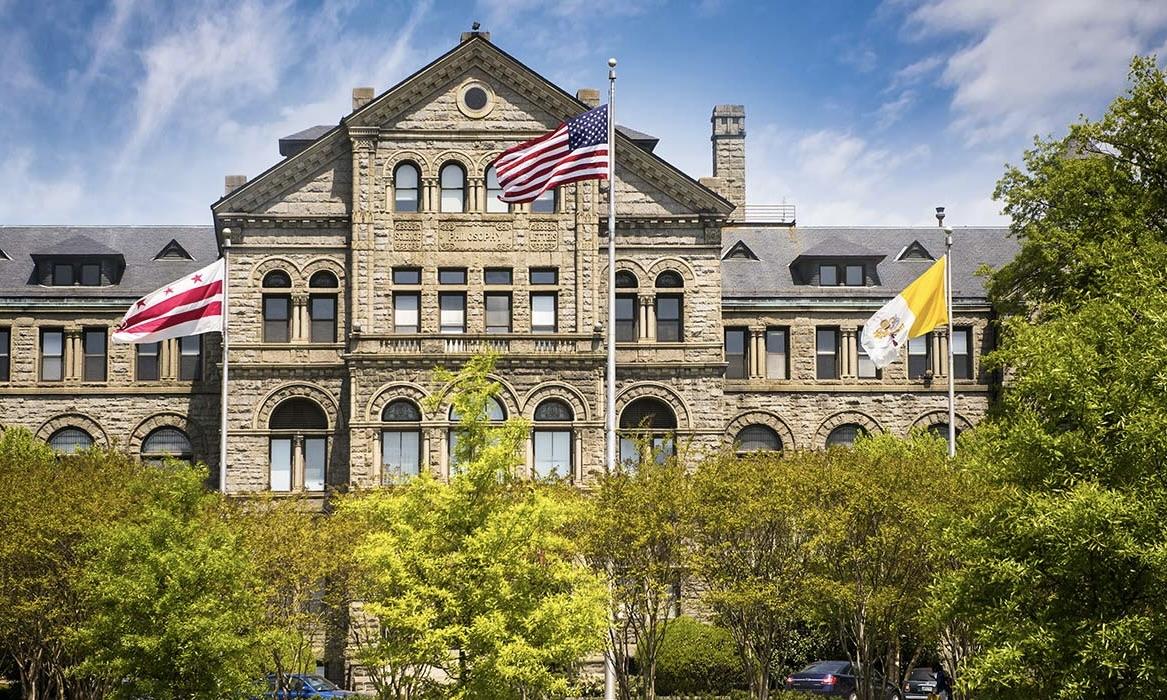In a move aimed at reshaping history education in America, the U.S. House of Representatives passed a bill requiring schools nationwide to teach students about the dangers of communism. Supporters hailed the legislation as a necessary step to preserve democracy, while critics argued it risks fueling ideological divides.
The legislation, titled the “Educating for Democracy Act,” passed largely along party lines with a vote of 227 to 198. Proponents of the bill argue that young Americans are increasingly unaware of communism's historical impact, including human rights abuses and economic instability. The measure mandates public schools include lessons on the atrocities committed under regimes like the Soviet Union, China under Mao Zedong, and North Korea.
House Majority Leader Mike Johnson championed the bill, stating that “an informed citizenry is essential to safeguarding liberty.” He added that teaching students about the pitfalls of communism ensures they understand the value of freedom and democracy.
However, critics say the legislation oversimplifies a complex ideology and risks turning classrooms into battlegrounds for political ideology. Democratic lawmakers called the bill “blatantly partisan” and argued it overlooks the broader context of global history.
Debate Over Communism Education Intensifies
Supporters of the bill emphasized the importance of educating students about the global consequences of communist regimes. Rep. Elise Stefanik (R-N.Y.) noted during the debate that the lack of awareness among younger generations could erode public understanding of democracy’s principles. She cited polls indicating a growing number of young Americans view socialism and communism more favorably than previous generations.
Critics, however, expressed concerns about the bill’s potential to distort history for political purposes. Rep. Alexandria Ocasio-Cortez (D-N.Y.) argued that the legislation risks vilifying an ideology without addressing the nuanced historical contexts in which it arose.
“Teaching history should not be about promoting one ideology over another,” she said. “We must teach the full story—not just cherry-pick what serves a political agenda.”
Educational experts have also weighed in, with some warning that the legislation could place undue strain on educators already grappling with politically charged curriculums. Others argued that the bill’s language lacked clarity, leaving teachers to interpret what constitutes an accurate representation of communism’s dangers.
Social Media Reacts
As news of the bill’s passage spread, social media erupted with passionate opinions. Here’s what netizens had to say:
- @LibertyFirst77: “Finally, our kids will learn the truth about communism. This is long overdue!”
- @TeachHistoryNow: “This bill simplifies history and risks turning classrooms into political battlegrounds. Let teachers teach!”
- @PatriotMom23: “If we don’t teach the dangers of communism, we’ll lose everything America stands for!”
- @HistoryNerd45: “Education should be unbiased. This bill doesn’t promote understanding—it promotes fear.”
- @FutureEducator91: “Kids need to know history, but this bill seems more like propaganda than education.”
- @JusticeForAll: “What about the dangers of unchecked capitalism? Balance the story, or it’s just indoctrination.”



 Israel Strikes Hezbollah Targets in Lebanon After Missile and Drone Attacks
Israel Strikes Hezbollah Targets in Lebanon After Missile and Drone Attacks  Federal Court Fines Mobil Oil Australia A$16 Million for Misleading Fuel Claims
Federal Court Fines Mobil Oil Australia A$16 Million for Misleading Fuel Claims  Pentagon Leaders Monitor U.S. Iran Operation from Mar-a-Lago
Pentagon Leaders Monitor U.S. Iran Operation from Mar-a-Lago  Peter Mandelson Arrested in London Amid Jeffrey Epstein Ties Investigation
Peter Mandelson Arrested in London Amid Jeffrey Epstein Ties Investigation  Trump Says U.S. Attacks on Iran Will Continue, Warns of More American Casualties
Trump Says U.S. Attacks on Iran Will Continue, Warns of More American Casualties  More U.S. Investors Join Arbitration Against South Korea Over Coupang Dispute
More U.S. Investors Join Arbitration Against South Korea Over Coupang Dispute  Iran Supreme Leader Ayatollah Ali Khamenei Killed in Israeli, U.S. Strikes: Reuters
Iran Supreme Leader Ayatollah Ali Khamenei Killed in Israeli, U.S. Strikes: Reuters  Netanyahu Suggests Iran’s Supreme Leader Khamenei May Have Been Killed in Israeli-U.S. Strikes
Netanyahu Suggests Iran’s Supreme Leader Khamenei May Have Been Killed in Israeli-U.S. Strikes  Maduro Seeks Dismissal of U.S. Drug Trafficking Case, Citing Sanctions Interference
Maduro Seeks Dismissal of U.S. Drug Trafficking Case, Citing Sanctions Interference  Federal Judge Blocks Virginia Social Media Age Verification Law Over First Amendment Concerns
Federal Judge Blocks Virginia Social Media Age Verification Law Over First Amendment Concerns  California Seeks Court Order to Halt Amazon’s Alleged Price Inflation Practices
California Seeks Court Order to Halt Amazon’s Alleged Price Inflation Practices  Panama Investigates CK Hutchison’s Port Unit After Court Voids Canal Contracts
Panama Investigates CK Hutchison’s Port Unit After Court Voids Canal Contracts  Federal Judge Orders Trump Administration to Facilitate Return of Deported Honduran Student
Federal Judge Orders Trump Administration to Facilitate Return of Deported Honduran Student  Federal Judge Blocks Trump Administration’s $600 Million Public Health Funding Cuts to Democratic-Led States
Federal Judge Blocks Trump Administration’s $600 Million Public Health Funding Cuts to Democratic-Led States  Trump Announces U.S. Strikes on Iran Navy as Conflict Escalates
Trump Announces U.S. Strikes on Iran Navy as Conflict Escalates  Does international law still matter? The strike on the girls’ school in Iran shows why we need it
Does international law still matter? The strike on the girls’ school in Iran shows why we need it  FedEx Faces Class Action Lawsuit Over Tariff Refunds After Supreme Court Ruling
FedEx Faces Class Action Lawsuit Over Tariff Refunds After Supreme Court Ruling 































